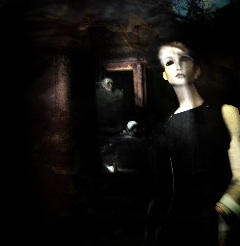2009 — Winter / Features
It could be said that conflict between opposites ultimately assumes a new place in the universe. One can arrive at many examples of opposing forces taking on transformations, even often fleeting ones – evil versus good, black versus white, women versus men, yin versus yang, communism versus capitalism, etc. Who would think that my surname, Kuklinski, could be poised in such a contest of antipodal proportions?
2009 — Winter / Books
Anyone who’s ever read memoirs written during or immediately after the war knows how very different they are from those written many years later. The writing is vivid, unembellished, adrenalin charged. Memories have not yet faded, been tampered with. There is no editorializing. War is an experience unlike any other. Nobody comes out of it unchanged. When these experiences are recorded by gifted writers – and Rulka Langer certainly was that — they are at once harrowing, inspiring and breathtaking.
2009 — Winter / Books
A great cover and a good review are often enough to get someone interested in a book, but it is not often that the book leads to curiosity about the publisher. Yet that is exactly what The Mermaid and the Messerschmitt did. Who published this beautiful book? Aquila Polonica? A new publishing house dedicated to the Polish World War II story? Who are they, and why this focus?
2009 — Winter / Interviews
As we reflect on the 20 years since the fall of communism in Europe and ponder what the future may hold, CR recently had a chance to ask a few questions of Professor Marek Suszko, who teaches at the Department of History at Loyola University in Chicago. He shared some insight about the positive developments that have taken place in Poland since 1989, the country’s role in the EU and its relationship with the United States.
2009 — Winter / Features
In early November, just in time for Holocaust Education Week, a special delegation from Poland arrived in Canada. Three Righteous Gentiles, who between them saved seven Jews from Nazi terror and helped countless others and a child Holocaust survivor, sheltered and later adopted by a Christian couple, came to tell Canadians their stories.
2009 — Winter / Features
The McGill University campus in Montreal, Canada was the setting of a recent international conference organized by the Polish Institute of Arts and Sciences in Canada on the 20th anniversary of the fall of communism in Europe. From Totalitarianism to Democracy: Twisted and Unfinished Road took place on October 21-22, 2009 and featured seventeen speakers from Canada, the United States, Poland, Germany and Australia.
2009 — Summer / Poetry
CR’s Poetry Editor shares some of his “Kitchen Polish.”
2009 — Summer / Features
It was 1967. I was twenty-four, a freshly-minted architecture graduate spending a year abroad. After driving through France and Spain, and an idyllic several months on the island of Formentera, I was back in Paris, staying with my uncle and aunt, before returning to Canada. But first, I wanted to visit Poland… Architecture critic Witold Rybczynski reminisces.
2009 — Summer / Features
I recently reminisced about my son’s visit to England when he was eighteen. He took his bike with him and had his itinerary well planned. It included a trip to Hatherleigh, a little town in Devon where my family spent a year when my parents were reunited after their long wartime separation.
2009 — Summer / Books
Katyń: A Crime Without Punishment is the latest volume in “The Annals of Communism” series published by Yale University Press. Rightly described as the most important publishing project currently in progress in the United States, it documents the 70-year reign of terror that began with the Communist revolution in Russia and has been largely ignored by western intellectuals – when not actively indulged by them.
2009 — Summer / Travel
An “Alphabet of Polish Football” to prepare fans for the 2012 European Championships, which will be co-hosted by Poland.
2009 — Summer / Commentary
On anti-spanking laws around the world – and in Poland’s interwar period.
2009 — Summer / Features
Bizarre grimaces, faces looking dazed, absent; others almost transparent or invisible and desperately staring ahead. All of them inhabited somewhat unspecified mysterious places: empty streets, decadent cafés, stylized shop displays, bourgeois lofts, modish ateliers.
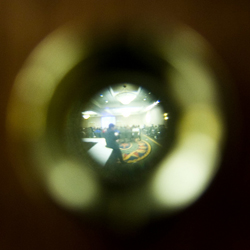
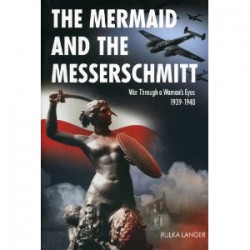
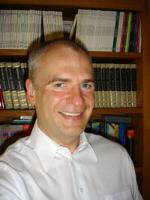
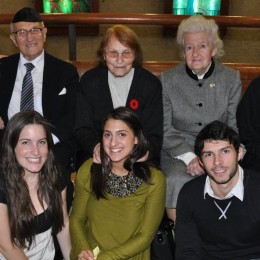
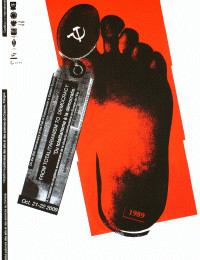
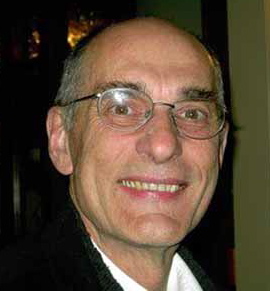
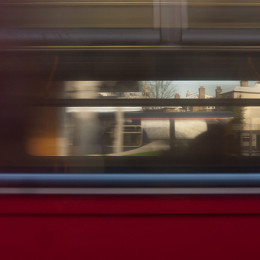
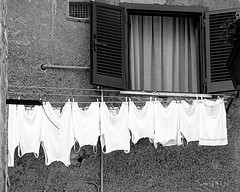
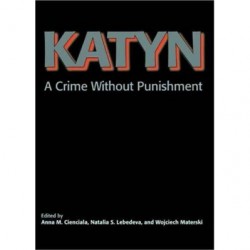
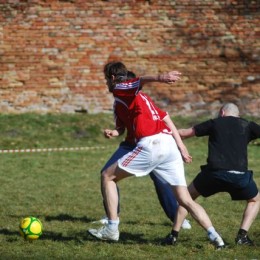
![To Spank [Your Child in Poland] or Not?](http://cosmopolitanreview.com/wp-content/uploads/2009/08/ChildrenInAfrica-250x208.jpg)
